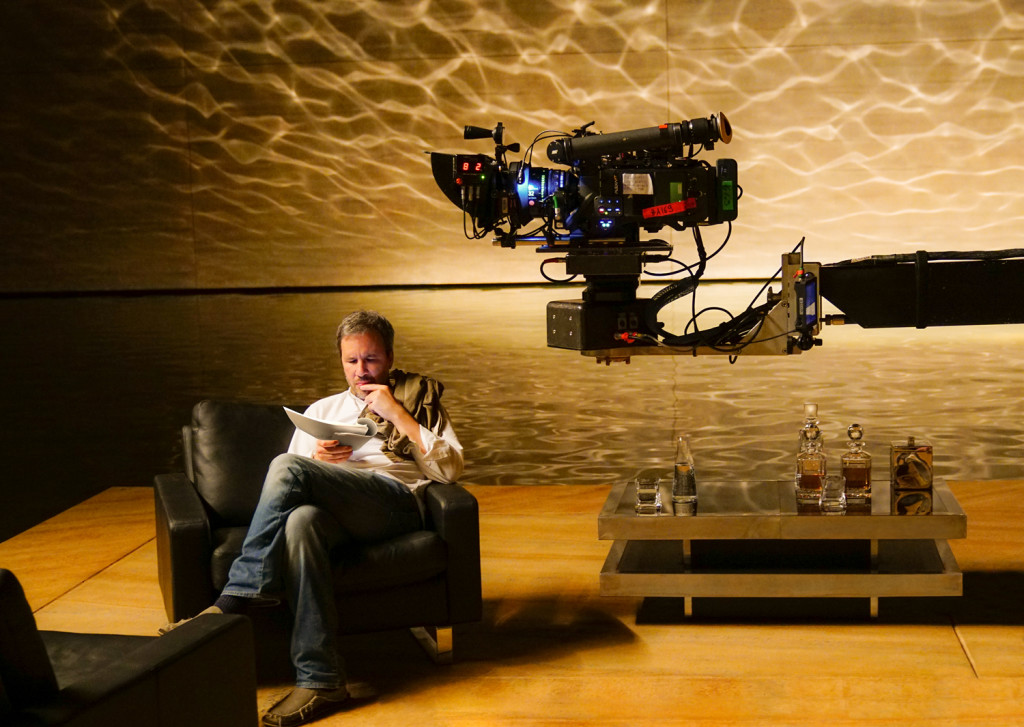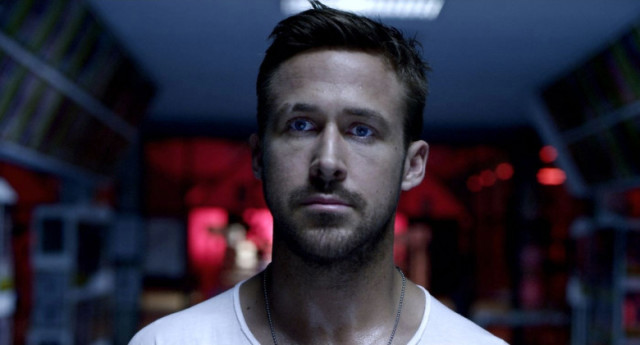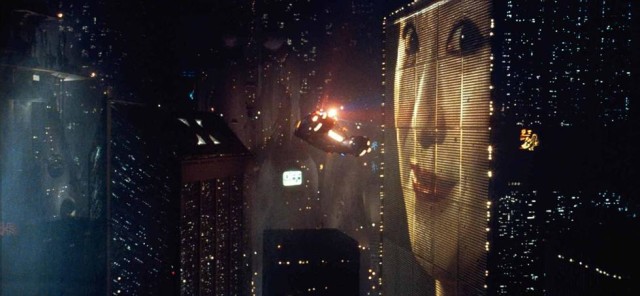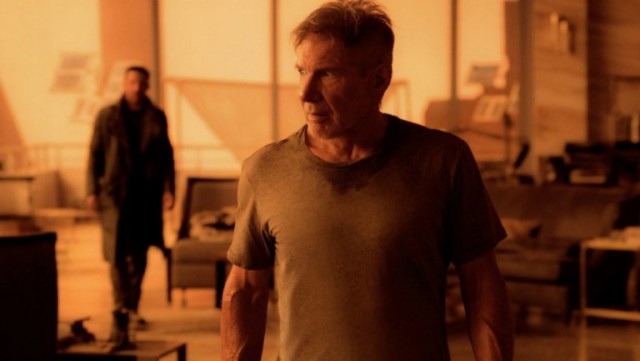Genre: Science Fiction
Premise: When an android Blade Runner discovers his entire life is a lie, he’ll stop at nothing to find out where he came from.
About: The long-in-development sequel to Blade Runner finally hit theaters this weekend, bringing in 32 million dollars on a 155 million dollar budget. That’s eye-opening. Not the 32 million part. Dark and thoughtful sci-fi never does blockbuster business. But that Warner Brothers and Sony gambled 155 million dollars on the movie in the first place. They had to know that this wasn’t Guardians of the Galaxy, right? Maybe they got lost in Ryan Gosling’s soulful eyes and got delusions of grandeur. One of the more shocking decisions for this sequel was bringing back the film’s original writer, Hampton Fancher, who, since 1982’s Blade Runner, literally has two writing credits that aren’t Blade Runner related.
Writer: Hampton Fancher and Michael Green (story by Hampton Fancher) based on characters from Philip K. Dick’s novel, “Do Androids Dream of Electric Sheep?”
Details: 2 hours, 45 minute running time
Before we get to the review of today’s film, let’s all put our Honesty Hats on and be real. The original Blade Runner had a terrible screenplay. It was bad, guys. Messy, wandering, lazy. Those who defend it don’t understand screenwriting.
So why is it such a beloved movie? Well, it isn’t. Or, I should say. It wasn’t. When it came out, nobody saw it. And those who did reacted with a collective, “Eh?” Why? Because of that aforementioned bad screenplay.
But one of the things cinema geeks love to do is claim failures and remake them into overlooked classics. It provides them with a sense of ownership. The movie is “theirs” because “they” are the ones who found and built it up.
Plus it’s cool to say you love something that other people don’t. And a funny thing happens if enough people claim ownership over a failure. You start to look ignorant if you don’t agree. And so what was, at best, an interesting experiment, has become some sort of misunderstood classic.
Let me be clear. I’m not saying that Blade Runner, on the whole, was a disaster. Just the screenplay. Blade Runner’s use of art direction, cinematography, and score, are some of the best in the history of the science-fiction genre. So much so that, at times, you’re tricked into believing what you’re watching is better than it is.
But guys. It always comes back to the story. And the story for Blade Runner was a mess. Despite seeing the movie several times over the years, I continue to forget the plot outside of “REPLICANTS.” That’s a classic sign of a bad screenplay.
Where does that leave us with this new iteration? Good question. Some say it’s better than the original. To them I would say, well, it didn’t have a whole lot to live up to on the script side. It just needed to make sense. As far as the visuals and the soundtrack? Villeneuve definitely brought in his own take on that. And while it was interesting, I don’t think he lived up to the stuff Ridley Scott did 35 years ago.
2049 follows a blade runner named “K” (Ryan Gosling). In the previous movie, humanoid robots, known as “replicants,” became faulty. So LAPD built a police unit to hunt them down. They called these special cops, “blade runners.” Rick Deckard (Harrison Ford) was one of the best of these blade runners.
Cut to now, 27 years later, and some of the old replicants are still out there. So we’ve built a new kind of blade runner. A robot version. K is one of these “robot” blade runners and spends the majority of his time struggling with the fact that he’s not human, that he doesn’t have a soul.
During an investigation, K finds out that a female replicant may have given birth to a child many years ago, which is impossible. He goes on the hunt to find this child, which leads him to Decker (who’s hiding out in a dystopian Vegas). I think you know where this is headed. It starts to look like K might, in fact, be the child, and that Decker may, in fact, be his father. However, the deeper K digs, the less everything makes sense.
Let’s start by discussing the directing. I’ll just say it: Denis Villeneuve is too minimalist and his imagination is too limited. After 30 minutes, you know, visually, exactly what you’re going to get. We’re either going to be outside in some color-tinted wasteland or inside in some white or yellow rectangular room.
To say that this movie is a visual masterpiece, as some have stated, is true to an extent. You can screen-grab 50 frames of this movie and come up with a pretty stellar coffee table book. But when you’re watching it in real time, it all feels so… similar. Is there really that much difference between the world of a foggy junked out San Diego and a foggy crumbling-to-pieces Las Vegas?
There’s a moment in 2049 when K goes down into the LA streets and meets a prostitute. It’s a clear ode to the original Blade Runner, with the bustling undercurrent of hustlers, the neon-lit store signs, and the clear umbrellas. It was one of the only times that Villeneuve abandoned his minimalist aesthetic. And you could see how uncomfortable he was, how desperate he was to get out of there. The actors were practically racing through their lines so Denis could get back to yet another rectangular room.
I don’t have a big problem with 2049’s visuals in a vacuum. Again, they’re beautiful as individual frames. The problem was that they exacerbated how slow the story was. The visuals were so similar from scene to scene, and so minimalist, that when a scene went on for five minutes longer than it should have – which happened often – you began to notice just how little was going on with the visual aesthetic.
I’m a big believer that you need contrast in film. You need to follow sad scenes with happy ones. If you’re going to take us into Death Valley in one scene, bring us to Mardi Gras the next. Because what happens when you keep giving us the same visuals and the same downbeat tone over and over again, we, the audience, GET AHEAD OF YOU. Because the imagery is exactly what we expect, we become the creator. We are essentially dictating what happens next. And that’s a screenwriting sin. The writer (and director) should always be ahead of the audience. Never the other way around.
And let’s talk about the length since this movie was way too long. When trying to determine how long your script should be, you need ask only one question: How long does it want to be? If your story has a big ensemble with lots of characters and many subplots – think “It” – you’re going to need time. But 2049 was a straightforward single-protagonist investigation. It didn’t need a lot of time to tell its story.
I’ll tell you what we definitely didn’t need. We didn’t need a 30 second shot of someone watching rain hit their hands. That’s self-indulgent bullshit. A 5 second shot will do AT MOST. If you indulge in every little moment like that, you’re adding 5, 10, 15 minutes to your running time.
And what does that mean on the screenwriting end? It means you’re LETTING TOO MUCH AIR OUT OF YOUR STORY. Every time you stay too long in a scene or too long in a moment, you’re releasing air from the balloon. Tension and interest are dissipating. That’s a fancy way of saying WE’RE BORRRRRRED.
This is why one of the first things they teach you in any screenwriting course is: CUT OUT THE FAT! Get into scenes late. Get out of scenes early. Don’t include a scene unless it moves the story forward. Blade Runner 2049 is what happens when writers and directors get full of themselves. They think the storytelling rules that have been around for 100 years don’t apply to them. And what’s the result? An overlong movie that’s mostly boring and that will only be enjoyed by Blade Runner geeks and cinema nerds.
Blade Runner 2049 is fun to look at for awhile. Its technical achievements are, for the most part, impressive. But as a story, it’s boring. It’s too icy. Too devoid of emotion despite emotion being a key theme. It’s visually monotonous. People will shame you if you dislike this film. They’ll tell you you don’t understand it or that you’re not a fan of movies. But I’m here to tell you it’s okay. It may be time to admit that the Blade Runner premise isn’t strong enough to build movies around.
[ ] What the hell did I just watch?
[x] wasn’t for me
[ ] worth the price of admission
[ ] impressive
[ ] genius
What I learned: The fallout of moving through your story too slowly or too indulgently is that the reader will consistently lose track of what’s going on. If you’ve written four 7-page scenes since the last major plot point was established, the reader is going to have a hard time remembering what that plot point was. This would happen often in Blade Runner 2049. I’d ask myself, “Wait, why is K in San Diego again?” “Wait, why is he visiting this weird woman who needs to live in a bubble?” Keep your storytelling tight guys. And know that the longer you indulge, the more you’re boring your audience.





